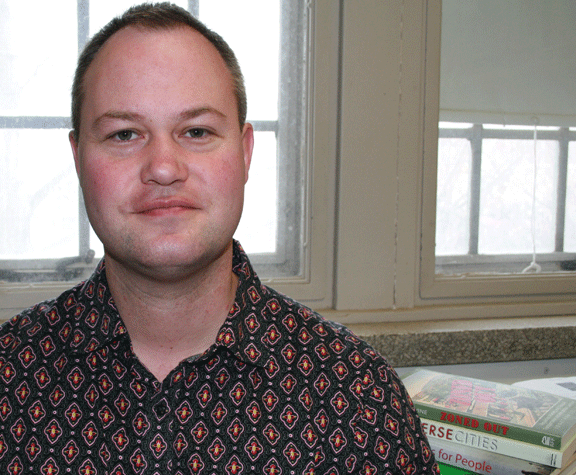U of S home to new Urban Aboriginal Knowledge Network site
The U of S is home to a new research centre focused on fostering connections between academics, Aboriginal organizations and governments across Canada.
By Colleen MacPherson The Urban Aboriginal Knowledge Network (UAKN) received funding in the spring of 2012 through a partnership grant from the Social Sciences and Humanities Research Council (SSHRC). The network is comprised of four regional headquarters across Canada, with the U of S being home to the Prairie Research Centre, which covers Saskatchewan and Manitoba.
The Urban Aboriginal Knowledge Network (UAKN) received funding in the spring of 2012 through a partnership grant from the Social Sciences and Humanities Research Council (SSHRC). The network is comprised of four regional headquarters across Canada, with the U of S being home to the Prairie Research Centre, which covers Saskatchewan and Manitoba.With more than 50 per cent of Canada's Aboriginal population living in urban areas, the network's mandate is to study issues affecting this demographic and encourage progressive public policy in applicable areas.
Ryan Walker, director of the UAKN's prairie centre and professor of urban planning, said the network's approach to grant approvals makes it unique. While community-based research often originates in academic offices, the UAKN is more likely to fund research projects that are generated, or "driven," by community groups, he said.
"If we err at all in our decisions, it would be erring on the side of projects that are mostly produced by and originate with community partners. We look very carefully at where research ideas are coming from. Having said that, it also has to be something that appeals to university researchers. We are not consultants for hire and the projects have to be something that can hold the interest of academics."
Following two calls for proposals, several projects are currently being funded by the UAKN's prairie centre. One, led by University of Winnipeg researchers, is studying urban Aboriginal food security. There are also many projects underway at the University of Saskatchewan, including one exploring addictions recovery among Aboriginal people who use the Saskatoon Friendship Centre, led by John Hansen in sociology.
Friendship centres across Canada have been integral not only in research projects to date, but also in getting the network established, Walker said. The network's national secretariat is housed at the National Association of Friendship Centres' head office in Ottawa, and that pre-existing partnership was a definite strength in the SSHRC application. Another key partner has been Aboriginal Affairs and Northern Development Canada.
"Often with partnership grants, organizations will jump on board after the grant is awarded. But in this case, the partnership was already there and we had a financial commitment, so the SSHRC grant really just allowed us to increase the scale of operations.
"Our goal is to give life to a community-driven model of research that brings together communities, government and academics so we can carry out a full process of knowledge creation to mobilization," he said.
"What we really want, at the end of it all, is to build durable research infrastructure that makes peoples' lives better than they were before we started."
Kirk Sibbald is a communications officer in the College of Arts and Science

